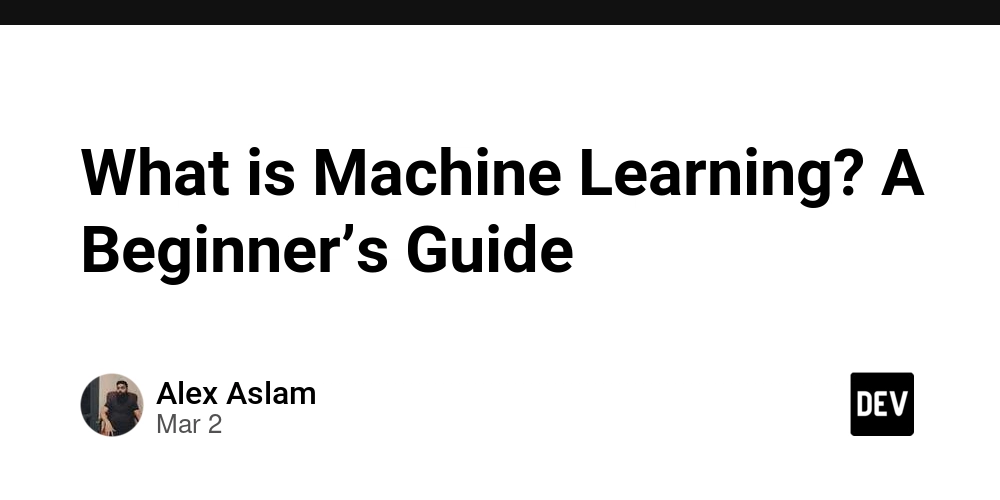Why is PHP Ideal for Developing an Event Management Platform?
Event management platforms have become essential tools for organizing and managing events, from small corporate gatherings to large-scale conferences and concerts. To build a scalable, secure, and feature-rich event management platform, choosing the right technology is crucial. PHP (Hypertext Preprocessor) stands out as one of the most popular and effective choices for backend development due to its flexibility, scalability, and cost-effectiveness. In this blog, we’ll explore why PHP is a preferred choice for developing event management platforms, its key advantages, and how it supports essential platform features like registration, ticketing, scheduling, and user engagement. Key Features of an Event Management Platform An event management platform needs to handle complex functionalities and high traffic while ensuring a smooth user experience. Some core features include: User Registration and Login – Secure account creation and management. Event Listing and Discovery – Ability to create, browse, and search for events. Ticketing and Payments – Secure booking and payment processing. Event Scheduling – Real-time updates on session times and locations. Communication Tools – Notifications, email confirmations, and reminders. Analytics and Reporting – Insights into attendee behavior and event performance. Why is PHP Perfect for Event Management Platforms? PHP has been a popular server-side scripting language for over two decades, powering nearly 80% of the websites on the internet, including platforms like Facebook and WordPress. Here’s why PHP is an ideal choice for event management platforms: Open-Source and Cost-Effective PHP is open-source, which means it's free to use and has a large community of developers continuously improving the language and creating libraries and frameworks. This reduces development costs and allows developers to build high-quality applications without licensing fees. ✅ No licensing costs ✅ Large library of open-source tools and frameworks (like Laravel, Symfony) ✅ Reduced development time and expenses Fast Development with Frameworks PHP has a wide range of frameworks that accelerate the development process by providing pre-built modules, MVC (Model-View-Controller) architecture, and built-in security features. Popular PHP Frameworks for Event Management Platforms: Laravel – Elegant syntax, powerful ORM, and secure authentication. Symfony – High-performance and flexible for handling complex applications. CodeIgniter **– Lightweight and fast for quick development. **Zend Framework – Enterprise-level framework known for its extensibility. For example, a Laravel-based event management platform can quickly integrate user registration, ticketing, and payment processing using pre-built libraries and APIs. Excellent Database Support Event management platforms rely on databases to store user data, event details, and booking history. PHP supports a wide range of databases, including: MySQL – Ideal for structured data and fast read/write operations. PostgreSQL – Suitable for handling large volumes of complex data. SQLite **– Lightweight and easy to set up for smaller applications. **MongoDB – NoSQL database for flexible data structures. For example, a PHP-based event platform can use MySQL to store user profiles and PostgreSQL for managing large event schedules and attendee lists. High Performance and Scalability PHP is designed to handle high volumes of user traffic and complex operations, making it suitable for large-scale event platforms. By integrating load-balancing and caching mechanisms, PHP applications can deliver fast responses and seamless user experiences. Built-in caching with OPcache to reduce load times. Load balancing with NGINX and Apache for handling large traffic spikes. Easy to scale horizontally by adding more servers. For example, an event platform built with PHP can handle thousands of simultaneous ticket purchases and real-time schedule updates without performance issues. Secure and Reliable Security is critical for open-source event ticketing systems, especially when handling payment details and personal user information. PHP offers robust security features to protect against common threats: Input Sanitization – Protects against SQL injection and cross-site scripting (XSS). CSRF Protection – Ensures secure form submissions. HTTPS/SSL Encryption – Protects data transmission. Session Management – Secure handling of user sessions and authentication. For example, PHP frameworks like Laravel come with built-in CSRF protection and input validation, reducing the risk of data breaches. Flexibility and Integration PHP is highly flexible and can be easily integrated with third-party tools and services to expand the platform’s capabilities. Payment Gateways: Stripe, PayPal, Razorpay Email Services: SendGrid, Mailgun Analytics: Google Analytics, Mixpanel Social Media: F

Event management platforms have become essential tools for organizing and managing events, from small corporate gatherings to large-scale conferences and concerts. To build a scalable, secure, and feature-rich event management platform, choosing the right technology is crucial.
PHP (Hypertext Preprocessor) stands out as one of the most popular and effective choices for backend development due to its flexibility, scalability, and cost-effectiveness.
In this blog, we’ll explore why PHP is a preferred choice for developing event management platforms, its key advantages, and how it supports essential platform features like registration, ticketing, scheduling, and user engagement.
Key Features of an Event Management Platform
An event management platform needs to handle complex functionalities and high traffic while ensuring a smooth user experience. Some core features include:
User Registration and Login – Secure account creation and management.
Event Listing and Discovery – Ability to create, browse, and search for events.
Ticketing and Payments – Secure booking and payment processing.
Event Scheduling – Real-time updates on session times and locations.
Communication Tools – Notifications, email confirmations, and reminders.
Analytics and Reporting – Insights into attendee behavior and event performance.
Why is PHP Perfect for Event Management Platforms?
PHP has been a popular server-side scripting language for over two decades, powering nearly 80% of the websites on the internet, including platforms like Facebook and WordPress. Here’s why PHP is an ideal choice for event management platforms:
Open-Source and Cost-Effective
PHP is open-source, which means it's free to use and has a large community of developers continuously improving the language and creating libraries and frameworks. This reduces development costs and allows developers to build high-quality applications without licensing fees.
✅ No licensing costs
✅ Large library of open-source tools and frameworks (like Laravel, Symfony)
✅ Reduced development time and expenses
Fast Development with Frameworks
PHP has a wide range of frameworks that accelerate the development process by providing pre-built modules, MVC (Model-View-Controller) architecture, and built-in security features.
Popular PHP Frameworks for Event Management Platforms:
Laravel – Elegant syntax, powerful ORM, and secure authentication.
Symfony – High-performance and flexible for handling complex applications.
CodeIgniter **– Lightweight and fast for quick development.
**Zend Framework – Enterprise-level framework known for its extensibility.
For example, a Laravel-based event management platform can quickly integrate user registration, ticketing, and payment processing using pre-built libraries and APIs.
Excellent Database Support
Event management platforms rely on databases to store user data, event details, and booking history. PHP supports a wide range of databases, including:
MySQL – Ideal for structured data and fast read/write operations.
PostgreSQL – Suitable for handling large volumes of complex data.
SQLite **– Lightweight and easy to set up for smaller applications.
**MongoDB – NoSQL database for flexible data structures.
For example, a PHP-based event platform can use MySQL to store user profiles and PostgreSQL for managing large event schedules and attendee lists.
High Performance and Scalability
PHP is designed to handle high volumes of user traffic and complex operations, making it suitable for large-scale event platforms. By integrating load-balancing and caching mechanisms, PHP applications can deliver fast responses and seamless user experiences.
- Built-in caching with OPcache to reduce load times.
- Load balancing with NGINX and Apache for handling large traffic spikes.
- Easy to scale horizontally by adding more servers.
For example, an event platform built with PHP can handle thousands of simultaneous ticket purchases and real-time schedule updates without performance issues.
Secure and Reliable
Security is critical for open-source event ticketing systems, especially when handling payment details and personal user information. PHP offers robust security features to protect against common threats:
Input Sanitization – Protects against SQL injection and cross-site scripting (XSS).
CSRF Protection – Ensures secure form submissions.
HTTPS/SSL Encryption – Protects data transmission.
Session Management – Secure handling of user sessions and authentication.
For example, PHP frameworks like Laravel come with built-in CSRF protection and input validation, reducing the risk of data breaches.
Flexibility and Integration
PHP is highly flexible and can be easily integrated with third-party tools and services to expand the platform’s capabilities.
Payment Gateways: Stripe, PayPal, Razorpay
Email Services: SendGrid, Mailgun
Analytics: Google Analytics, Mixpanel
Social Media: Facebook, Twitter, LinkedIn
For example, a PHP-based event platform can integrate Stripe for ticket payments, SendGrid for event reminders, and Google Analytics to track attendee engagement.
RESTful API and Mobile Compatibility
Event platforms often need to offer mobile apps or integrate with other platforms. PHP allows developers to create RESTful APIs that can be consumed by mobile apps and external systems.
- Build an API layer using Laravel or Symfony.
- Use JSON responses for faster and cleaner data exchange.
- Secure API endpoints with token-based authentication.
For example, a PHP-based event platform can offer an API for a mobile app that allows users to register, book tickets, and receive notifications.
Large Developer Community and Support
PHP has a vast developer community that provides continuous support, documentation, and open-source libraries. This makes it easier to find solutions to common problems and speed up development.
- Extensive online documentation and tutorials.
- Large GitHub repository of PHP-based plugins and modules.
- Dedicated PHP forums and Stack Overflow support.
Building an Eventbrite management system in PHP is highly achievable due to the flexibility and scalability of the language. You can leverage:
Laravel – This is for rapid development and secure authentication.
MySQL – For efficient handling of event data.
Stripe – For secure ticket payments.
Firebase – For real-time notifications.
React Native – For creating a mobile app connected to the PHP backend.
A PHP-based Eventbrite clone can handle user registration, ticketing, and real-time event updates with minimal downtime and high performance.
Advantages of Using PHP for Event Platforms
✅ It is open-source and cost-effective.
✅ Fast development with rich framework support.
✅ High scalability and performance.
✅ Strong security features for handling payments and user data.
✅ Easy integration with third-party services.
✅ RESTful API support for mobile and web compatibility.
Final Thought
PHP’s flexibility, cost-effectiveness, and powerful framework ecosystem make it a smart choice for building an event management platform. Its ability to handle high traffic, secure data processing, and seamless integration with other services ensures that you can create a scalable and feature-rich event platform.
By combining PHP with modern frameworks like Laravel and integrating it with payment gateways, real-time notifications, and data analytics, you can develop an event platform that delivers a superior user experience and drives business growth.










![From drop-out to software architect with Jason Lengstorf [Podcast #167]](https://cdn.hashnode.com/res/hashnode/image/upload/v1743796461357/f3d19cd7-e6f5-4d7c-8bfc-eb974bc8da68.png?#)






























































